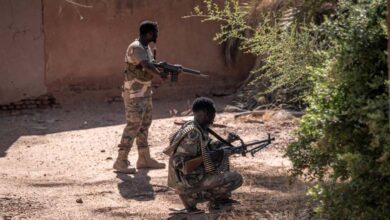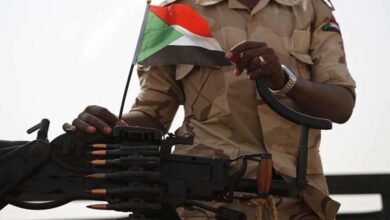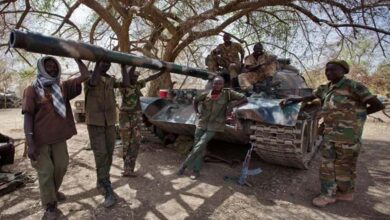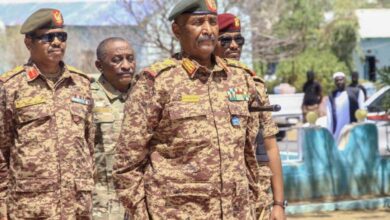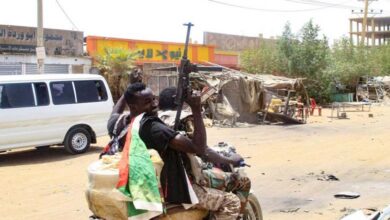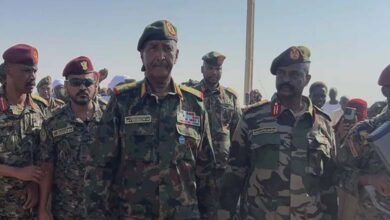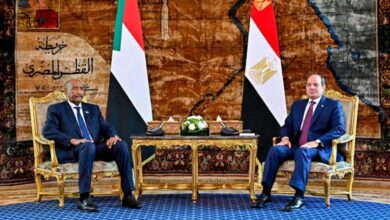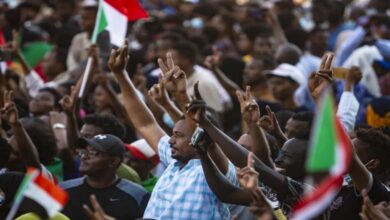Sudan: Arena of Iranian and Brotherhood Influence
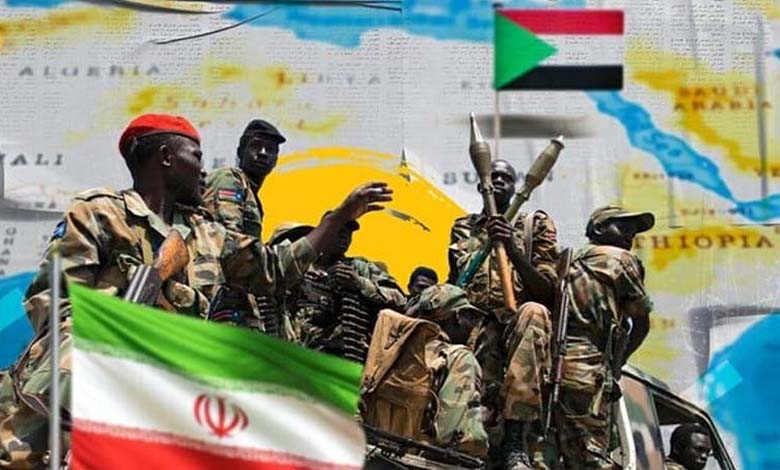
Sudan emerges as a battleground for Iranian and Brotherhood influence, leading to a shared sphere between the Brotherhood and Iran, transforming into a fragmented state.
Recent intelligence reports reveal Iran’s ongoing efforts to bolster its influence in the heart of Africa, with Sudan emerging as a new arena for regional competition. These reports indicate Tehran’s enticing offer to Khartoum to establish a naval base in the Red Sea, in exchange for military support including advanced drones.
However, it is said that the Sudanese army has rejected this offer, complicating the geopolitical landscape in the region. Tehran’s move is seen as an attempt to expand its sphere of influence not only in Sudan but also over vital maritime trade routes and strategic passages leading to the Suez Canal and Israel’s regional waters. This development underscores the role regional powers play in shaping the future of the Middle East and highlights the strategic importance of the Red Sea as a contested zone of influence.
Sudan, the Brotherhood, and the Meeting with al-Ghariani
Formerly exiled Mufti and political face of the Muslim Brotherhood in Libya, Sadiq al-Ghariani, met with the Transitional Sovereignty Council President in Sudan, General Abdul Fattah al-Burhan, on the sidelines of his official visit to the Libyan capital, Tripoli.
Analysts suggest that Sudan’s Muslim Brotherhood views Libya as a safe haven and that al-Burhan’s meeting with al-Ghariani is an attempt to signal his alignment with the Qizan, the Islamic Movement, and the previous regime, as he wasn’t obliged to meet al-Ghariani during his visit to Libya. This meeting serves as an official declaration by the Sudanese army chief of allegiance to the Muslim Brotherhood, a move that could open the door to all forms of violence and extremism, potentially returning Sudan to years of international isolation.
Analysts speculate that the meeting discussed the aid that would be provided to the Sudanese army by militias and brigades affiliated with the Brotherhood, executing al-Ghariani’s directives to the fullest.
Iran, Expansion of Influence, and Alliances
Sudanese political analyst Adel Hamad asserts clear evidence of strengthened Iranian-Sudanese relations, such as the delivery of “Mohajer-6” drones to the Sudanese army, casting doubt on Sudan’s denial of American reports regarding the rejection of establishing the naval base, hinting at the presence of Iranian experts at the “Wadi Seidna” base.
He added that many informed sources questioned the claims by the Wall Street Journal regarding the Sudanese army’s rejection of the Iranian offer, suggesting that the mentioned source in the report may be fabricated.
Regional and Security Competition
On the other hand, Sudanese political analyst Alim Al-Din Omar warned of Iran’s attempts to control the Red Sea to influence navigation, pointing out that Islamists in Port Sudan, aligned with Iran, might facilitate this control. Omar added that major powers like Russia and Saudi Arabia would not allow it, but Iranian relations with the government in Port Sudan could enhance Iran’s chances.
Omar noted that spreading Shia ideology in Sudanese society is part of Iran’s strategy to influence other countries, adding that Iran’s presence in the Red Sea poses a threat to the region’s security as a whole, potentially disrupting international navigation and destabilizing regional stability.
Balance of Power
It is worth mentioning that a report by Bloomberg in January revealed Iran’s direct involvement in military conflicts within Sudan, contributing to escalating conflicts and threatening the stability of the region as a whole.
The report stated that Iran provided support to the Sudanese army by supplying drones, demonstrating a clear bias towards government forces in the face of the Rapid Support Forces.
This intervention is seen as part of a broader strategy by Iran to expand its military and political influence in Africa, with Sudan being a key pivot point in this strategy, given its strategic geographical location and abundant natural resources. Analysis suggests that Iran may use Sudan as a platform to bolster its presence on the continent, potentially altering the balance of power in the region.


